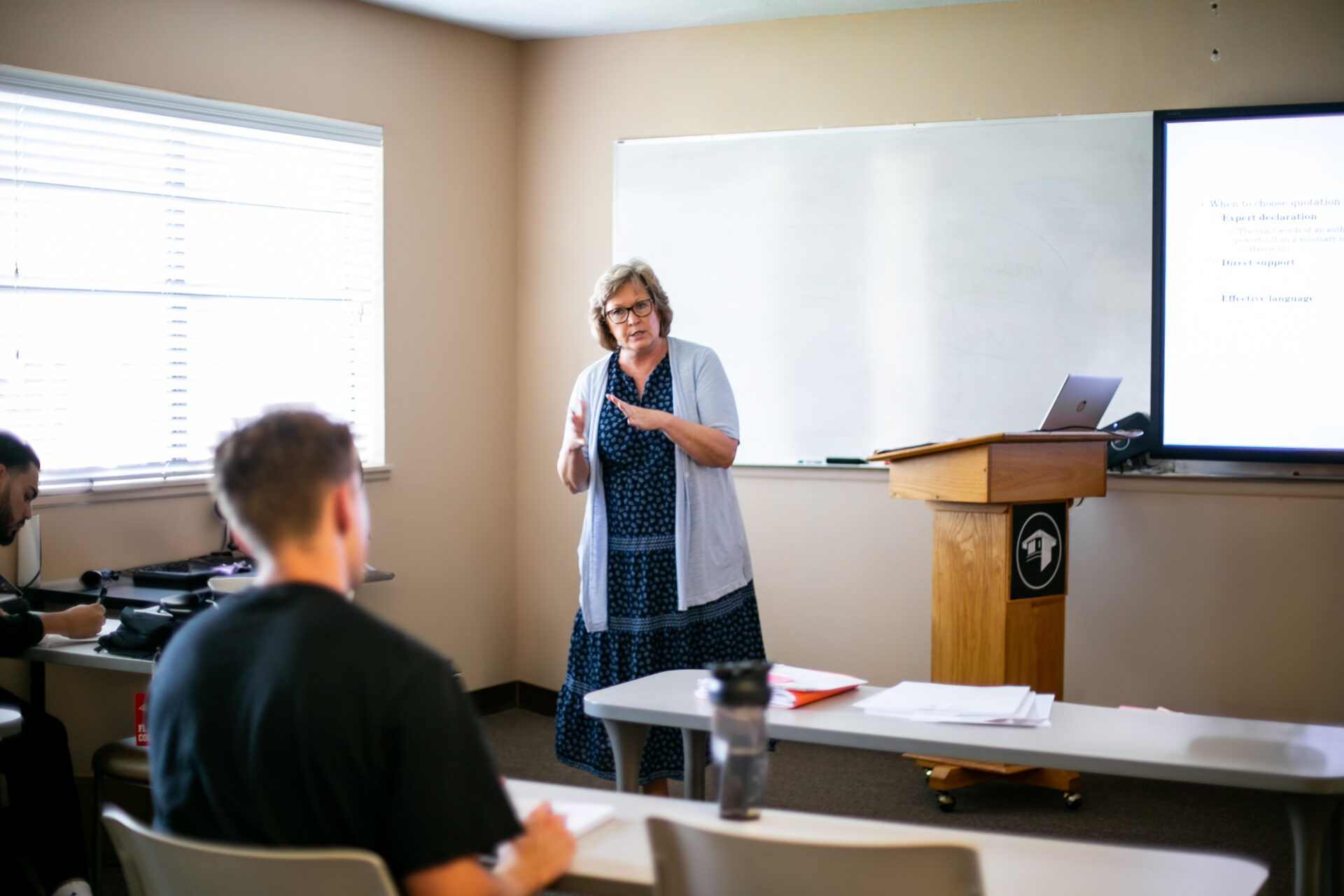Karen Witherington’s 30+ Years of Shaping Minds Through Literature at Florida College
December 16, 2024 | 3-4 min read
Karen Witherington, M.A., has been a fixture on the Florida College campus for more than three decades. Now chair of the English and Languages department, she couldn’t have imagined the impact of her decision to attend FC when she arrived in 1978.
Originally from Longview, Texas, Witherington received her associate’s degree from FC and later her Bachelor of Arts in English from the University of Northern Alabama.
“I enjoyed literature classes so much but didn’t really know what to do, so I went home to Longview and decided to continue my education,” she said.
After receiving her graduate degree at Steven F. Austin State University in Nacogdoches, Texas, she returned to Temple Terrace in 1985 – this time as faculty. In 1991, she married FC alum David Witherington (‘82), and later welcomed sons Zach and Joseph (’22). She spent several years at home before returning to teach core humanities classes and Survey of British Literature – one of the only literature courses offered in the late 90’s.
“In the early 2000s faculty developed the English degree program, and American Literature was added,” she remembered.
Today, FC’s English Department includes more than 20 upper division courses spanning British and American literature, along with creative writing, advanced grammar, professional editing, and writing concentration courses, all proving popular among students in other degree programs as well. The 2024-25 school year also includes a Modern Poetry class covering an overview of 20th century authors, along with Medieval Literature.
“That’s one of my favorite courses, because it was a rich period spanning hundreds of years,” Witherington explained. “It’s referred to as the ‘dark ages’ but produced such a rich culture in literature and writings.”
Another personal favorite is 19th century British Romantic Literature, delving into works by Byron, Shelley and Keats.
“It’s important to view literature not as being isolated, but rather a reflection of what’s going on culturally and historically, looking at what’s being promoted in the writing and what it says about that time period,” Witherington emphasized. “It’s just fascinating how these stories tell us where we come from and human nature in general, both the good and the bad. Being able to make biblical connections, determining whether the literature conforms to a biblical message or counters it, is also special.”
Witherington has seen countless changes in her 30 years on campus but credits colleagues and students with bringing her back each semester.
“The kids are great and keep me energized and connected,” she said. “I enjoy interacting and studying with them, and I love our conversations. Those are special moments for me, and the fact that we share a faith is unusual in the academic setting. To have worked for a lifetime in that kind of scenario is a great blessing.”

